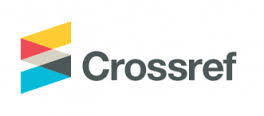The Effect of Using a Teaching Strategy Based on Multiple Intelligences in Acquiring, the Ability to Solve Mathematical Problems, and Motivation towards Learning Mathematics among Ninth-Grade Students
DOI:
https://doi.org/10.59759/educational.v3i4.489Keywords:
Multiple Intelligences, Acquiring Mathematical Concepts, Solving Mathematical Problems, Motivation to Learn, Ninth GradeAbstract
The study aimed to determine the effect of using a teaching strategy based on multiple intelligences in acquiring mathematical concepts, the ability to solve mathematical problems, and motivation towards learning mathematics among ninth-grade students. The experimental approach with a quasi-experimental design was relied upon, and to achieve the objectives of the study, a sample consisting of (42) ninth grade students, among them were (22) experimental groups, and (20) a control group, was chosen intentionally, in the academic year 2023/2024 AD. The engineering unit was prepared according to the multiple intelligences strategy, and a test for acquiring mathematical concepts was used, consisting of (15) questions of a choice. The math problem solving test consists of (10) essay questions, and the motivation to learn scale consists of (27) items. The results of the study showed that the stduents in the experimenatal group were excellent in the test of acquiring mathematical concepts, mathematical problem solving test, and the motivation to learn scale, which indicates that using the stratgey based on multiple intelligences in acquiring mathematical concepts, the ability to solve mathematical problems, and motivation towards learning mathematics among ninth-grade students was effective.


